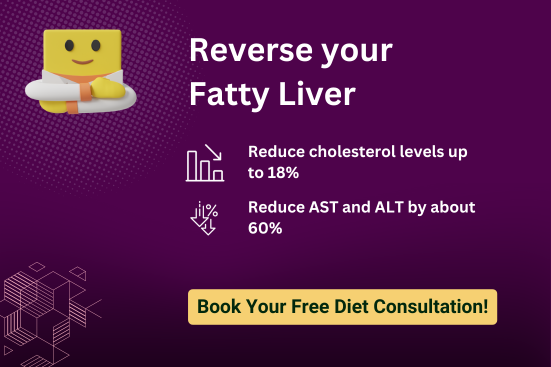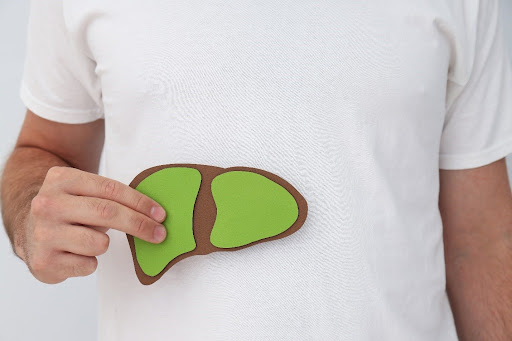Guarding Your Liver: Practical Tactics to Lower Fatty Liver Risk

A Dietary Guide to Gifting Your Fatty Liver a Long Life
02 May 2024
If there’s one thing most of us can agree on is that staying healthy is super important, and what we eat is a big part of that. Today, we’re talking about something called fatty liver disease, which is all about how our diet affects our liver. Basically, fatty liver disease is when too much fat builds up in our liver cells, making it hard for them to work properly. It’s well-known that what we eat can make a big difference in this condition. By choosing the right foods and sticking to a special diet for fatty liver, we can really help manage and maybe even reverse fatty liver disease.
As we dig deeper into the subject of foods to avoid with fatty liver, we aim to guide you through the intricacies of dietary habits that can help maintain liver health. We will delve into the significance of certain foods that can aid liver health and others that might have an adverse effect. So, if you’re wondering what to put on your plate for a healthier liver, keep reading!
Did you know? In India, NAFLD, or non-alcoholic fatty liver disease, is prevalent among 38.6% of adults.
Falling in Love with Greens: Your Liver Will Thank You
When it comes to a diet for a healthy liver, green is the new black! That’s right; leafy greens such as spinach are your liver’s best friends. So, if you’ve been shying away from fruits and veggies so far, it’s high time you introduced them to your plate. Bursting at the seams with nutrients, they come packed with antioxidants that protect your liver cells from damage. It’s not just about spinach, though. Some other fruits and vegetables to incorporate are blueberries, lemons, and apples.
Get Fibre-Fit: The Fullness Factor
You might have heard about high-fibre foods being good for weight loss. But did you know they’re also excellent for a fatty liver? Foods like legumes and whole grains slow down digestion, help you feel full faster and longer, and prevent spikes in blood sugar levels. This means fewer cravings and fewer chances of overeating!
Easy recipe: Oats are an excellent source of fibre. Make yourself a bowl of oatmeal topped with fruits and nuts to kick off the day.
Fishy Business: Diving into Omega-3s
If you’re someone who enjoys fish, here’s another reason to love it even more! Fish like salmon, sardines, and tuna aren’t just tasty; they’re super rich in omega-3 fatty acids. Omega-3s are good fats that help reduce inflammation in your body and can help combat fat buildup in your liver. A couple of servings per week can go a long way toward improving your liver health. If you’re a vegetarian, worry not! Walnuts are a great source of omega-3s, too. A handful a day can lead to significant improvements in your liver functions.
Spice it Up: Turmeric to the Rescue
Many of us know turmeric as an essential ingredient in our favourite curry. But did you know that it’s also a powerhouse of health benefits? The active ingredient in turmeric, curcumin, is a potent anti-inflammatory and antioxidant that can help improve liver health. So, why not add a dash of turmeric to your meals and give your liver the love it deserves?
Just Say No: Foods to Avoid with Fatty Liver
While there’s a lot that you can eat to improve your liver health, there are certain foods to avoid with fatty liver. Alcohol can cause and worsen fatty liver disease. Additionally, try to limit your intake of added sugars, fried foods, red meat, and processed grains. These foods contribute to weight gain and liver damage.
A Quick Recap
As you can see, your liver health largely depends on what you load onto your plate. Fatty liver diet restrictions can indeed make a significant difference when dealing with a fatty liver. The verdict is clear: ditching processed foods and embracing a diet filled with fresh fruits, leafy vegetables, whole grains, and lean proteins can contribute to a liver that functions at its best.
Understanding all this can be pretty overwhelming, right? But remember, you’re not alone in this journey towards better liver health. At tatvacare.in, we’ve made it our mission to provide you with easy-to-understand health information and the support you need to take care of yourself better. After all, taking care of your health should be as simple as enjoying a hearty meal. So why not get in touch with us? Let us guide you in making lifestyle changes that truly count!

FAQs
Q. What are the symptoms of fatty liver disease?
A: Fatty liver is mostly asymptomatic. If the disease advances, you may experience weakness, weight loss, abdominal pain, and confusion.
Q. What are the risk factors for fatty liver disease?
A: The risk factors most commonly linked to fatty liver disease are obesity (body mass index above 30), diabetes, elevated triglyceride levels, and metabolic syndrome.
Q. How is fatty liver disease diagnosed?
A: Your doctor may see something unusual in a blood test or notice a slightly enlarged liver during a routine check. These could be signs of a fatty liver. To make sure, your doctor may ask for more blood tests (including liver function tests), imaging tests, or a liver biopsy.
Q. Should I completely eliminate fats from my diet if I have fatty liver disease?
A: Not necessarily. Healthy fats like those found in avocados, oily fish, olive oil, and nuts are essential for your bodily functions. However, processed food and liver health do not go hand in hand.
Q. How is fatty liver disease treated?
A: In most cases, people with fatty liver disease are prescribed fatty liver diet restrictions and encouraged to take regular exercise and lose weight.

Medically reviewed by
Dr. Krunal Chaudhari 
MBBS, MD
Recent Blog
- Handwritten to Digital in Seconds: SmartSync Converts Prescriptions Instantly
- Voice Rx by TatvaPractice: A Smarter Way to Digitise Prescriptions
- PCOS Facts vs. Myths: Get the Right Information
- The PCOS-Insulin Resistance Connection: Unlocking Solutions for Better Health
- The Secret to Managing PCOS: Your Ultimate Diet Plan Revealed
Archives
Categories
- Asthma (20)
- Diabetes (15)
- Fatty Liver (20)
- High Blood Pressure (2)
- High cholesterol (2)
- Hypertension (2)
- Insulin Resistance (1)
- Obesity (8)
- PCOS (6)
- TatvaPractice (10)
Let’s Connect
Quick contact




